Link To The Gay Porn Library Of Alexandria.

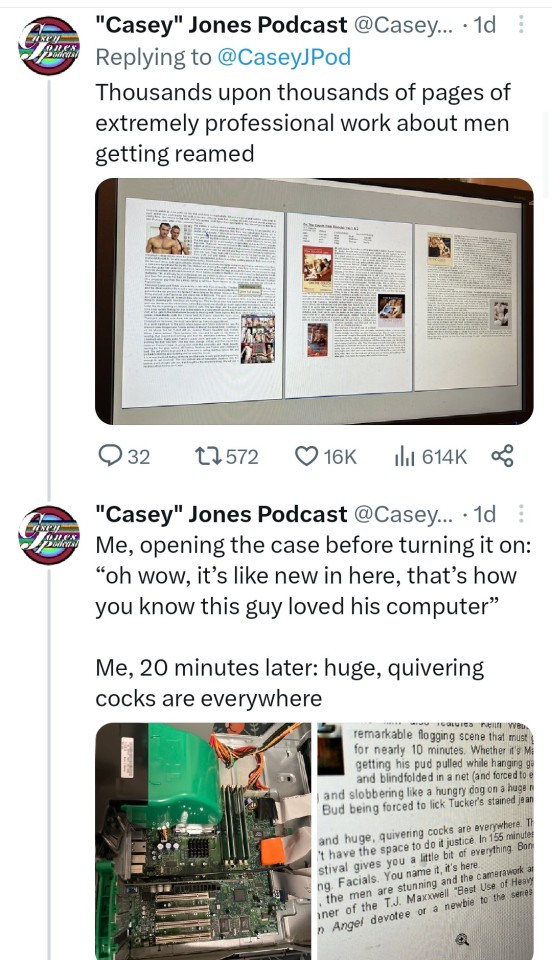
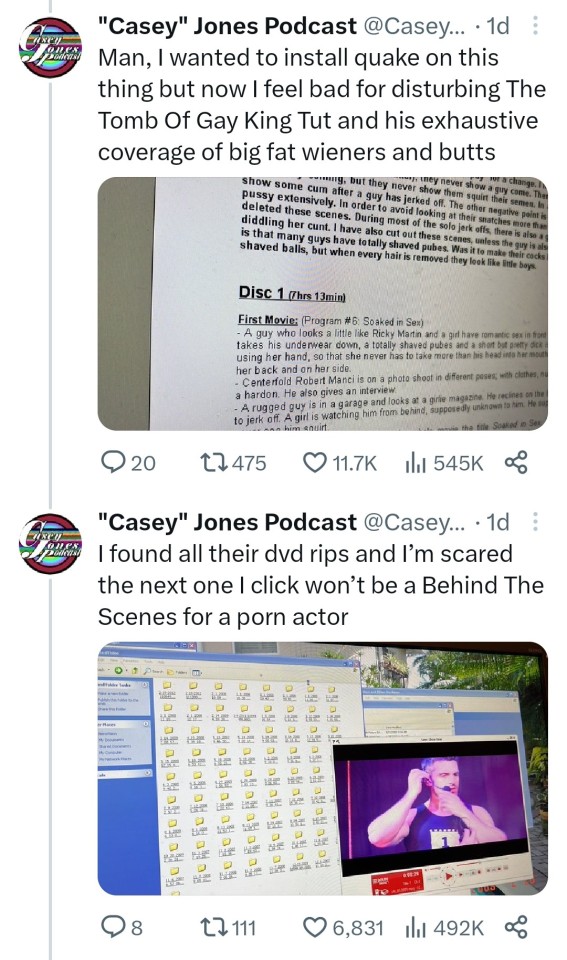
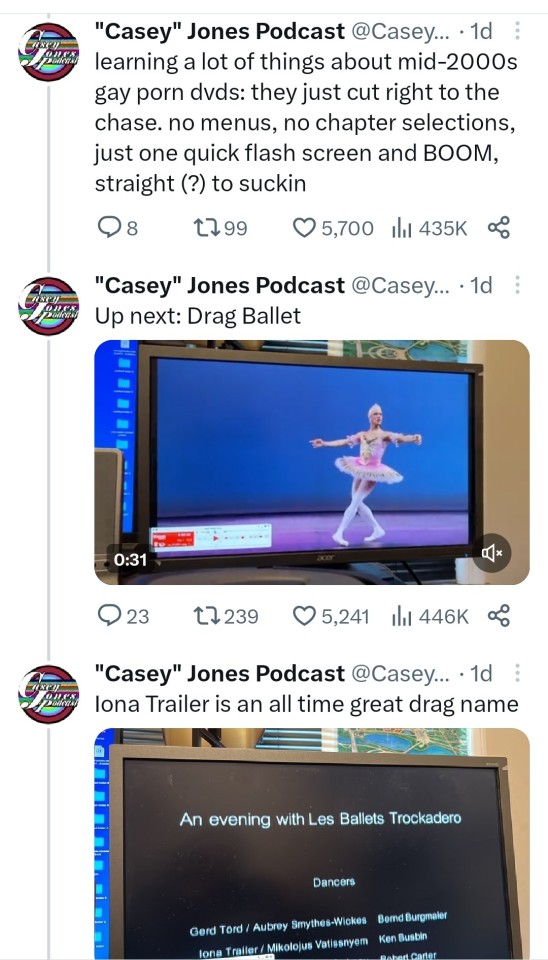

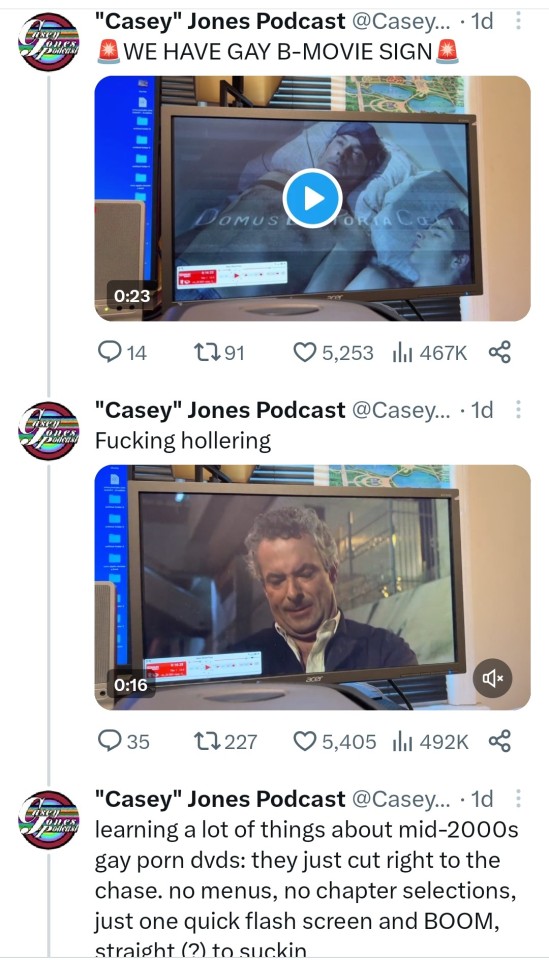



Link to the gay porn library of Alexandria.
Happy pride.
More Posts from Defis-archive and Others
Why the Protagonist Must Be a Problem-solver

In some ways, this post's topic sounds obvious, in others . . . not so much. On the surface, the tip seems simple, and yet, it is easily and often overlooked.
Your protagonist must be a problem-solver.
Yup.
A problem-solver.
I don't care if she's the laziest, most passive, most dimwitted person on the planet, within the context of the plot, she must be a problem-solver (even if a reluctant one).
Otherwise, she'll feel like a weak character.
Otherwise, the plot will feel weak.
Of course, I'm sure you can find rare exceptions to this.
But 99% of the time, your protagonist needs to be a problem-solver.
So let's talk about why.

Why it's Important for The Character
Imagine a protagonist who doesn't problem-solve. She encounters the antagonist, reacts emotionally, but doesn't do anything to try to win the conflict, or at least gain the upper hand of the conflict. She won't be interesting for very long. It's hard to care about what happens to her, when she's putting no effort in to resolve it, when she doesn't care enough to try to fix it herself. It may start to feel like she's stuck in a loop--just circling the same internal responses over and over again, never really progressing, never really moving on.
Sometimes writers mistakenly think this makes her more sympathetic, but in reality, as counterintuitive as it may sound, the opposite is true. Audiences lose interest or become annoyed.
We've all met people who talk, and whine, and fume about their problems but don't do anything to better their situation. We may feel sorry for them at first, but eventually, we want them to take action to improve their predicament. Often we may even find ourselves giving advice (or in some cases, doing the problem-solving work for them).
We feel the same way about characters.
Your protagonist doesn't need to be the next Sherlock Holmes or Violet Baudelaire to be a "problem-solver."
At the most basic level, what this means is that when she encounters an antagonistic force (a problem), she's coming up with--or perhaps shifting--goals and plans (however big or small, or grand or modest), and taking action to try to make those a reality.
If she's not doing that, she's probably too passive in the plot and not exercising enough agency. The story is happening to her, but she's not doing anything to make the story happen. She's not influencing the direction of the story.
When the protagonist is the one coming up with goals and plans, and implementing them, the audience becomes more invested in her. They want to stick around to see if she's successful. She also now holds some accountability over what happens--the consequences--and that actually makes her more interesting and more sympathetic. What happens, good or bad, is on her. She holds responsibility.
If your protagonist isn't problem-solving, it may be a sign that her wants aren't strong enough. Solid stories will showcase the protagonist's deepest desires (however big or small, or grand or modest), what she would sacrifice almost anything to obtain, avoid, or maintain. If the right desire is in jeopardy, the protagonist should naturally be driven to problem-solve. Characters with strong wants are more compelling. And in reality, we all have powerful wants we house deep within our hearts.
Great stories will test and challenge the deep desires of the protagonist's heart. And if that's not happening, you likely haven't figured out your protagonist's deepest desires or you need to alter the character so that she desires what she desires more deeply. Don't settle on something she kinda wants. Find what she'd be tempted to sacrifice her life for--literally or figuratively (meaning her current lifestyle). What does she want to obtain, avoid, or maintain bad enough, that she'd consider doing things she wouldn't ordinarily do? That's the kind of want you should showcase--whether it be obtaining recognition as employee of the month, avoiding responsibility by taking on a new identity, or maintaining control by offing all rebels.
It's usually helpful to focus on an abstract want--obtain recognition, avoid responsibility, maintain control--that can then manifest into various concrete goals. Most people aren't going to give their "lives" to become "employee of the month," but many have gone to such lengths to obtain recognition; becoming employee of the month is just one way to obtain that. So even if the goal seems modest on the surface, tie it to a deep abstract want. (A bit of a tangent, but it's useful, so I left it in here 😉)
When the protagonist is problem-solving, it conveys to the audience what she cares about. If the rebels are increasing in power, and she doesn't do anything about it, then obviously she doesn't really care about being in control very much. That's not a deep desire of her heart. So we need the protagonist to problem-solve to help convey character.
And finally, if she's not struggling to overcome (problem-solving), she's probably not growing through a character arc. She's stagnant. She's not changing her worldview as she strives for success, nor is she wielding her beliefs, growing in resolve. This can make any attempt at an internal plotline feel repetitive or nonexistent, because the character isn't progressing on an internal journey. She's just stuck in the same spot.

Why It's Important for the Plot
Solid stories will showcase the protagonist's deepest desires, and even if those desires are abstract (obtain recognition, avoid responsibility, maintain control), if the character wants them bad enough, they will manifest into concrete goals (employee of the month, new identity, off the rebels) that have specific plans (show up on time to work, move to a new city, locate the rebels' base).
So the protagonist has a goal. The antagonist opposes the goal.
And since there should be an antagonist for nearly every scene, this means there are problems in nearly every scene.
If the protagonist isn't trying to solve those problems, by adjusting his goals and plans, then it's likely the plot isn't properly progressing. Like I mentioned with the internal journey above, the external journey probably feels repetitive, or in some ways nonexistent. It's just circling the same situation over and over, in the toilet bowl.
If you find yourself arguing against this, then it's likely because another character is the one doing most of the problem-solving, in which case, it's also highly likely that character is the true protagonist, and your "protagonist" is really more of a viewpoint character spectating the external plotline.
The plot needs conflict in order to progress properly. If the antagonist shows up, and the protagonist allows himself to just get beaten, it's not strong conflict. Sure, stuff is happening, but if the antagonist is hammering him to the ground without his resistance, it's not much of a conflict. It's passive victimization. And while that might work in a scene or two, it's not going to hold for a whole story, or even a whole act.
A passive victim isn't a problem-solving protagonist. Obviously.
So, suffice it to say, your protagonist needs to be a problem-solver.
How to show emotions
Part V
How to show grief
a vacant look
slack facial expressions
shaky hands
trembling lips
swallowing
struggling to breathe
tears rolling down their cheeks
How to show fondness
smiling with their mouth and their eyes
softening their features
cannot keep their eyes off of the object of their fondness
sometimes pouting the lips a bit
reaching out, wanting to touch them
How to show envy
narrowing their eyes
rolling their eyes
raising their eyebrows
grinding their teeth
tightening jaw
chin poking out
pouting their lips
forced smiling
crossing arms
shifting their gaze
clenching their fists
tensing their muscles
then becoming restless/fidgeting
swallowing hard
stiffening
holding their breath
blinking rapidly
exhaling sharply
How to show regret
scrubbing a hand over the face
sighing heavily
downturned mouth
slightly bending over
shoulders hanging low
hands falling to the sides
a pained expression
heavy eyes
staring down at their feet
More: How to write emotions Masterpost
If you like my blog and want to support me, you can buy me a coffee or become a member! And check out my Instagram! 🥰
i'm AWARE this is a stupid hill to die on, but like. trope vs theme vs cliché vs motif vs archetype MATTERS. it matters to Me and i will die on this hill no matter how much others decide it's pointless. words mean things
Y’ever read something and have understanding that has eluded you interminably suddenly stop, curl up, and snuggle neatly into a fold in your brain because a new way way opened to it?

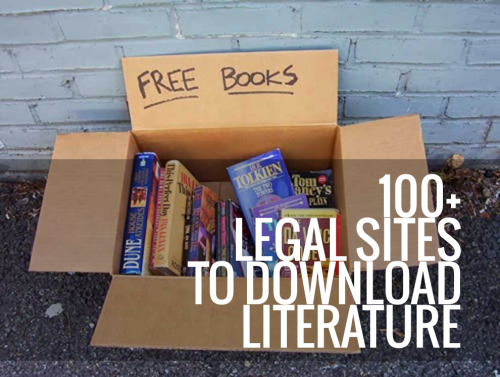
FAMOUS AUTHORS
Classic Bookshelf: This site has put classic novels online, from Charles Dickens to Charlotte Bronte.
The Online Books Page: The University of Pennsylvania hosts this book search and database.
Project Gutenberg: This famous site has over 27,000 free books online.
Page by Page Books: Find books by Sir Arthur Conan Doyle and H.G. Wells, as well as speeches from George W. Bush on this site.
Classic Book Library: Genres here include historical fiction, history, science fiction, mystery, romance and children’s literature, but they’re all classics.
Classic Reader: Here you can read Shakespeare, young adult fiction and more.
Read Print: From George Orwell to Alexandre Dumas to George Eliot to Charles Darwin, this online library is stocked with the best classics.
Planet eBook: Download free classic literature titles here, from Dostoevsky to D.H. Lawrence to Joseph Conrad.
The Spectator Project: Montclair State University’s project features full-text, online versions of The Spectator and The Tatler.
Bibliomania: This site has more than 2,000 classic texts, plus study guides and reference books.
Online Library of Literature: Find full and unabridged texts of classic literature, including the Bronte sisters, Mark Twain and more.
Bartleby: Bartleby has much more than just the classics, but its collection of anthologies and other important novels made it famous.
Fiction.us: Fiction.us has a huge selection of novels, including works by Lewis Carroll, Willa Cather, Sherwood Anderson, Flaubert, George Eliot, F. Scott Fitzgerald and others.
Free Classic Literature: Find British authors like Shakespeare and Sir Arthur Conan Doyle, plus other authors like Jules Verne, Mark Twain, and more.
TEXTBOOKS
Textbook Revolution: Find biology, business, engineering, mathematics and world history textbooks here.
Wikibooks: From cookbooks to the computing department, find instructional and educational materials here.
KnowThis Free Online Textbooks: Get directed to stats textbooks and more.
Online Medical Textbooks: Find books about plastic surgery, anatomy and more here.
Online Science and Math Textbooks: Access biochemistry, chemistry, aeronautics, medical manuals and other textbooks here.
MIT Open Courseware Supplemental Resources: Find free videos, textbooks and more on the subjects of mechanical engineering, mathematics, chemistry and more.
Flat World Knowledge: This innovative site has created an open college textbooks platform that will launch in January 2009.
Free Business Textbooks: Find free books to go along with accounting, economics and other business classes.
Light and Matter: Here you can access open source physics textbooks.
eMedicine: This project from WebMD is continuously updated and has articles and references on surgery, pediatrics and more.
MATH AND SCIENCE
FullBooks.com: This site has “thousands of full-text free books,” including a large amount of scientific essays and books.
Free online textbooks, lecture notes, tutorials and videos on mathematics: NYU links to several free resources for math students.
Online Mathematics Texts: Here you can find online textbooks likeElementary Linear Algebra and Complex Variables.
Science and Engineering Books for free download: These books range in topics from nanotechnology to compressible flow.
FreeScience.info: Find over 1800 math, engineering and science books here.
Free Tech Books: Computer programmers and computer science enthusiasts can find helpful books here.
CHILDREN’S BOOKS
byGosh: Find free illustrated children’s books and stories here.
Munseys: Munseys has nearly 2,000 children’s titles, plus books about religion, biographies and more.
International Children’s Digital Library: Find award-winning books and search by categories like age group, make believe books, true books or picture books.
Lookybook: Access children’s picture books here.
PHILOSOPHY AND RELIGION
Bored.com: Bored.com has music ebooks, cooking ebooks, and over 150 philosophy titles and over 1,000 religion titles.
Ideology.us: Here you’ll find works by Rene Descartes, Sigmund Freud, Karl Marx, David Hume and others.
Free Books on Yoga, Religion and Philosophy: Recent uploads to this site include Practical Lessons in Yoga and Philosophy of Dreams.
The Sociology of Religion: Read this book by Max Weber, here.
Religion eBooks: Read books about the Bible, Christian books, and more.
PLAYS
ReadBookOnline.net: Here you can read plays by Chekhov, Thomas Hardy, Ben Jonson, Shakespeare, Edgar Allan Poe and others.
Plays: Read Pygmalion, Uncle Vanya or The Playboy of the Western World here.
The Complete Works of William Shakespeare: MIT has made available all of Shakespeare’s comedies, tragedies, and histories.
Plays Online: This site catalogs “all the plays [they] know about that are available in full text versions online for free.”
ProPlay: This site has children’s plays, comedies, dramas and musicals.
MODERN FICTION, FANTASY AND ROMANCE
Public Bookshelf: Find romance novels, mysteries and more.
The Internet Book Database of Fiction: This forum features fantasy and graphic novels, anime, J.K. Rowling and more.
Free Online Novels: Here you can find Christian novels, fantasy and graphic novels, adventure books, horror books and more.
Foxglove: This British site has free novels, satire and short stories.
Baen Free Library: Find books by Scott Gier, Keith Laumer and others.
The Road to Romance: This website has books by Patricia Cornwell and other romance novelists.
Get Free Ebooks: This site’s largest collection includes fiction books.
John T. Cullen: Read short stories from John T. Cullen here.
SF and Fantasy Books Online: Books here include Arabian Nights,Aesop’s Fables and more.
Free Novels Online and Free Online Cyber-Books: This list contains mostly fantasy books.
FOREIGN LANGUAGE
Project Laurens Jz Coster: Find Dutch literature here.
ATHENA Textes Francais: Search by author’s name, French books, or books written by other authors but translated into French.
Liber Liber: Download Italian books here. Browse by author, title, or subject.
Biblioteca romaneasca: Find Romanian books on this site.
Bibliolteca Virtual Miguel de Cervantes: Look up authors to find a catalog of their available works on this Spanish site.
KEIMENA: This page is entirely in Greek, but if you’re looking for modern Greek literature, this is the place to access books online.
Proyecto Cervantes: Texas A&M’s Proyecto Cervantes has cataloged Cervantes’ work online.
Corpus Scriptorum Latinorum: Access many Latin texts here.
Project Runeberg: Find Scandinavian literature online here.
Italian Women Writers: This site provides information about Italian women authors and features full-text titles too.
Biblioteca Valenciana: Register to use this database of Catalan and Valencian books.
Ketab Farsi: Access literature and publications in Farsi from this site.
Afghanistan Digital Library: Powered by NYU, the Afghanistan Digital Library has works published between 1870 and 1930.
CELT: CELT stands for “the Corpus of Electronic Texts” features important historical literature and documents.
Projekt Gutenberg-DE: This easy-to-use database of German language texts lets you search by genres and author.
HISTORY AND CULTURE
LibriVox: LibriVox has a good selection of historical fiction.
The Perseus Project: Tufts’ Perseus Digital Library features titles from Ancient Rome and Greece, published in English and original languages.
Access Genealogy: Find literature about Native American history, the Scotch-Irish immigration in the 19th and 20th centuries, and more.
Free History Books: This collection features U.S. history books, including works by Paul Jennings, Sarah Morgan Dawson, Josiah Quincy and others.
Most Popular History Books: Free titles include Seven Days and Seven Nights by Alexander Szegedy and Autobiography of a Female Slave by Martha G. Browne.
RARE BOOKS
Questia: Questia has 5,000 books available for free, including rare books and classics.
ARTS AND ENTERTAINMENT
Books-On-Line: This large collection includes movie scripts, newer works, cookbooks and more.
Chest of Books: This site has a wide range of free books, including gardening and cooking books, home improvement books, craft and hobby books, art books and more.
Free e-Books: Find titles related to beauty and fashion, games, health, drama and more.
2020ok: Categories here include art, graphic design, performing arts, ethnic and national, careers, business and a lot more.
Free Art Books: Find artist books and art books in PDF format here.
Free Web design books: OnlineComputerBooks.com directs you to free web design books.
Free Music Books: Find sheet music, lyrics and books about music here.
Free Fashion Books: Costume and fashion books are linked to the Google Books page.
MYSTERY
MysteryNet: Read free short mystery stories on this site.
TopMystery.com: Read books by Edgar Allan Poe, Sir Arthur Conan Doyle, GK Chesterton and other mystery writers here.
Mystery Books: Read books by Sue Grafton and others.
POETRY
The Literature Network: This site features forums, a copy of The King James Bible, and over 3,000 short stories and poems.
Poetry: This list includes “The Raven,” “O Captain! My Captain!” and “The Ballad of Bonnie and Clyde.”
Poem Hunter: Find free poems, lyrics and quotations on this site.
Famous Poetry Online: Read limericks, love poetry, and poems by Robert Browning, Emily Dickinson, John Donne, Lord Byron and others.
Google Poetry: Google Books has a large selection of poetry, fromThe Canterbury Tales to Beowulf to Walt Whitman.
QuotesandPoem.com: Read poems by Maya Angelou, William Blake, Sylvia Plath and more.
CompleteClassics.com: Rudyard Kipling, Allen Ginsberg and Alfred Lord Tennyson are all featured here.
PinkPoem.com: On this site, you can download free poetry ebooks.
MISC
Banned Books: Here you can follow links of banned books to their full text online.
World eBook Library: This monstrous collection includes classics, encyclopedias, children’s books and a lot more.
DailyLit: DailyLit has everything from Moby Dick to the recent phenomenon, Skinny Bitch.
A Celebration of Women Writers: The University of Pennsylvania’s page for women writers includes Newbery winners.
Free Online Novels: These novels are fully online and range from romance to religious fiction to historical fiction.
ManyBooks.net: Download mysteries and other books for your iPhone or eBook reader here.
Authorama: Books here are pulled from Google Books and more. You’ll find history books, novels and more.
Prize-winning books online: Use this directory to connect to full-text copies of Newbery winners, Nobel Prize winners and Pulitzer winners.
how i sleep knowing i will pirate every single thing released on disney plus

me: *writes fic*
me: great! time to post to ao3-
ao3 summary box: *exists*
me:
ao3 summary box:
me:
ao3 summary box:
me:
Hey it's time for Oathbreaker now
Hey everybody it's me Natalie and it's been NaNoWriMo for a hot minute. It kinda snuck up on me this year so I don't think I've talked about what I'm doing this year. Well, you can come see for yourself over at https://www.patreon.com/posts/oathbreaker-ch-1-74022737 where I've posted Chapter One of Oathbreaker, A Crusader's Tale: Of the life and doings of Sir Reynold d'Morwen, Marquis of Eldur.
Oathbreaker is a return to my Nameless Queen universe (for y'all who've been reading along, it deals with events immediately before Brood and then immediately after The Carnival of Carnal Delights) during what can best be described as a highly fictionalized take on the Baltic Crusades. It follows the rather harrowing misadventures of Reynold d'Morwen, a boy from Morwen Vale who took holy orders to escape justice for a terrible crime and now finds himself part of a military order, the Knights of St. Vitus, where he's dragooned into a war of conquest and faith with the vicious and fearless barbarians to the north of his homeland. Thrown into a life wherein every moment of existence is an act of faith and war, Reynold is forced to grow up hard and fast and make some hard decisions about who he is, what he stands for, and what it means to do the right thing.
I'm me, so obviously there's going to be a lot of thud-and-blunder action violence wherein no swash remains unbuckled coupled with lots of queer pining and anticlericalism. Come see all the exciting attractions, such as: How Freydis' battle plan from Carnival worked out. Fantasy Cathars and Fantasy Bogomils. The omnicidal omnisexual cannibals (aka the good guys). Guys making bad decisions that end very badly for everyone involved. Guys who are just being bros with their bros who are definitely guys until it turns out they're girls. Giant spiders. Awkward teenagers in love bumbling into each other. And lots and lots and lots and lots and lots and lots of religious trauma!
You can head on over to https://www.patreon.com/posts/oathbreaker-ch-1-74022737 to read Chapter 1: Four Hares and a Priest along with like . . . a shitload of other stuff for the low low price of $2 American. New chapters every other Wednesday.
-
 monkyehehe reblogged this · 4 days ago
monkyehehe reblogged this · 4 days ago -
 sitlolly liked this · 4 days ago
sitlolly liked this · 4 days ago -
 arkad reblogged this · 4 days ago
arkad reblogged this · 4 days ago -
 purple-hel reblogged this · 4 days ago
purple-hel reblogged this · 4 days ago -
 jets076 liked this · 4 days ago
jets076 liked this · 4 days ago -
 blackvampirecat311 liked this · 4 days ago
blackvampirecat311 liked this · 4 days ago -
 photosinthesisforthewinthesis reblogged this · 4 days ago
photosinthesisforthewinthesis reblogged this · 4 days ago -
 dreamofbecoming reblogged this · 4 days ago
dreamofbecoming reblogged this · 4 days ago -
 muckmagister liked this · 5 days ago
muckmagister liked this · 5 days ago -
 lilichh reblogged this · 5 days ago
lilichh reblogged this · 5 days ago -
 knightofbluh reblogged this · 5 days ago
knightofbluh reblogged this · 5 days ago -
 knightofbluh liked this · 5 days ago
knightofbluh liked this · 5 days ago -
 faerielightning reblogged this · 5 days ago
faerielightning reblogged this · 5 days ago -
 faerielightning reblogged this · 5 days ago
faerielightning reblogged this · 5 days ago -
 xluxsolarisx reblogged this · 5 days ago
xluxsolarisx reblogged this · 5 days ago -
 youngserfs reblogged this · 6 days ago
youngserfs reblogged this · 6 days ago -
 anruik reblogged this · 1 week ago
anruik reblogged this · 1 week ago -
 ceza-141 liked this · 1 week ago
ceza-141 liked this · 1 week ago -
 writer-fennec reblogged this · 1 week ago
writer-fennec reblogged this · 1 week ago -
 writer-fennec liked this · 1 week ago
writer-fennec liked this · 1 week ago -
 sylvanas-fan-club liked this · 1 week ago
sylvanas-fan-club liked this · 1 week ago -
 hauntedmoontimetravel liked this · 1 week ago
hauntedmoontimetravel liked this · 1 week ago -
 snickeringmacs reblogged this · 1 week ago
snickeringmacs reblogged this · 1 week ago -
 jollycapybara liked this · 1 week ago
jollycapybara liked this · 1 week ago -
 endlessnebula reblogged this · 1 week ago
endlessnebula reblogged this · 1 week ago -
 azureisthebestblue reblogged this · 1 week ago
azureisthebestblue reblogged this · 1 week ago -
 zokiraaa reblogged this · 1 week ago
zokiraaa reblogged this · 1 week ago -
 r-0-x-4-s liked this · 1 week ago
r-0-x-4-s liked this · 1 week ago -
 lemonalienlime liked this · 1 week ago
lemonalienlime liked this · 1 week ago -
 parallel5ths reblogged this · 1 week ago
parallel5ths reblogged this · 1 week ago -
 raining-in-the-starlight liked this · 1 week ago
raining-in-the-starlight liked this · 1 week ago -
 avaparation liked this · 1 week ago
avaparation liked this · 1 week ago -
 iamabadspeller liked this · 1 week ago
iamabadspeller liked this · 1 week ago -
 buffysummerswannabe reblogged this · 1 week ago
buffysummerswannabe reblogged this · 1 week ago -
 protectwoc reblogged this · 1 week ago
protectwoc reblogged this · 1 week ago -
 protectwoc liked this · 1 week ago
protectwoc liked this · 1 week ago -
 aspacewar liked this · 1 week ago
aspacewar liked this · 1 week ago -
 carseycritter liked this · 1 week ago
carseycritter liked this · 1 week ago -
 maikanto reblogged this · 1 week ago
maikanto reblogged this · 1 week ago -
 curious-compendium reblogged this · 1 week ago
curious-compendium reblogged this · 1 week ago -
 spacebisexual69 liked this · 1 week ago
spacebisexual69 liked this · 1 week ago -
 dawn-of-the-sequel-to-the reblogged this · 1 week ago
dawn-of-the-sequel-to-the reblogged this · 1 week ago -
 dawn-of-the-sequel-to-the reblogged this · 1 week ago
dawn-of-the-sequel-to-the reblogged this · 1 week ago -
 dawn-of-the-sequel-to-the reblogged this · 1 week ago
dawn-of-the-sequel-to-the reblogged this · 1 week ago -
 dawn-of-the-sequel-to-the reblogged this · 1 week ago
dawn-of-the-sequel-to-the reblogged this · 1 week ago -
 dawn-of-the-sequel-to-the liked this · 1 week ago
dawn-of-the-sequel-to-the liked this · 1 week ago -
 theartofdisappearing liked this · 1 week ago
theartofdisappearing liked this · 1 week ago










